Key takeaways:
- Online tutoring provides personalized, flexible learning, especially beneficial for students with dyslexia, allowing for one-on-one attention and tailored instruction.
- Dyslexia training empowers individuals by addressing unique challenges and enhancing both academic skills and self-esteem, promoting inclusivity in education.
- Choosing a tutor with the right experience in dyslexia is crucial; evidence-based methods and a supportive approach greatly enhance learning effectiveness.
- Establishing clear goals and maintaining open communication with tutors helps track progress, ensuring that tutoring remains relevant and effective for the student’s development.
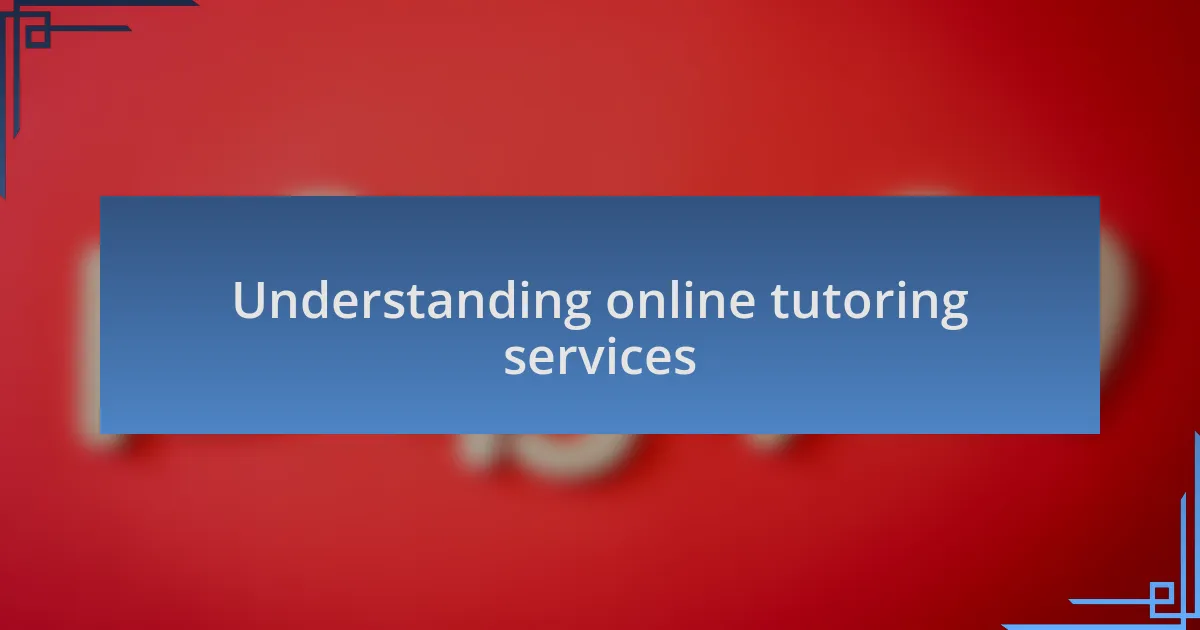
Understanding online tutoring services
Online tutoring services have become an invaluable resource for many learners, especially those with learning differences like dyslexia. I remember my first experience with online tutoring; the convenience was a game-changer. I could access quality help right from my living room, making it less intimidating and more manageable.
These services offer tailored instruction that can adapt to each student’s unique needs, a crucial aspect for those who often struggle in traditional settings. Have you ever felt lost in a crowded classroom? Online tutoring allows for one-on-one attention that can lead to deeper understanding and retention of material.
Furthermore, the flexibility of scheduling makes it easier to fit learning into a busy life. There were times I had to rearrange my tutoring sessions to accommodate my daily routine, and I appreciated having that option. It’s not just about the content; it’s about finding the right time and space to learn effectively.
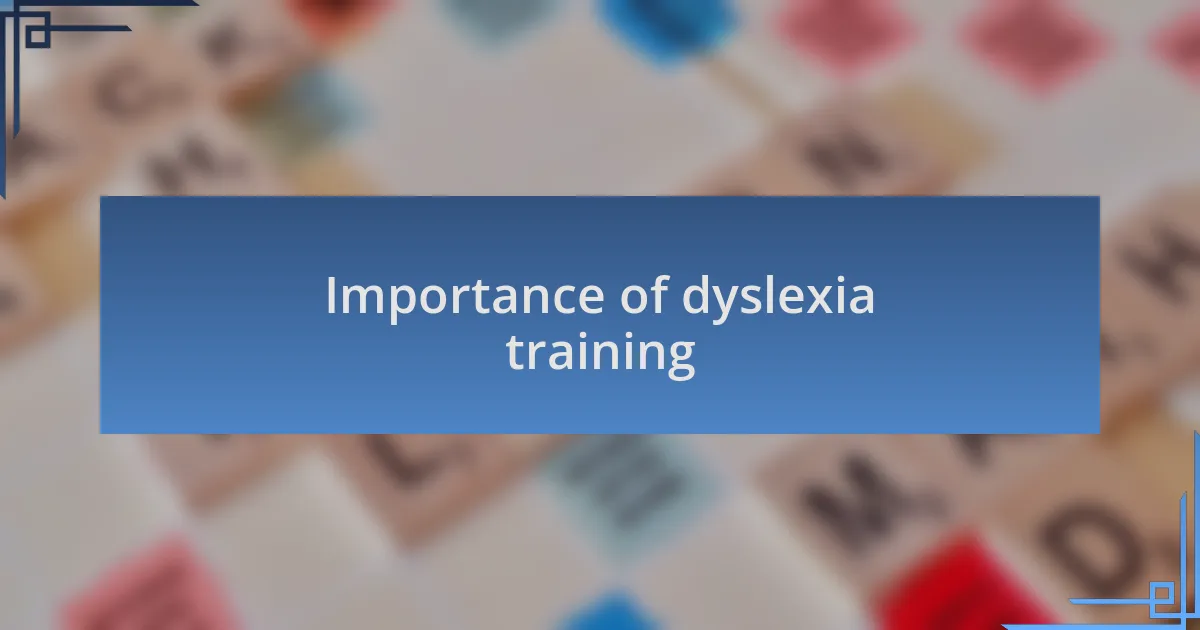
Importance of dyslexia training
Dyslexia training is essential because it addresses the unique learning challenges faced by individuals with dyslexia. After all, understanding how to decode words and process information differently can significantly change a person’s academic journey. I’ve seen students light up when concepts finally click for them after the right support.
Effective training not only improves reading and writing skills but also boosts self-esteem. I once worked with a student who felt defeated by his struggles. After targeting specific areas of difficulty through a structured approach, he transformed from reluctant to eager, proving that the right training can empower individuals to embrace their learning differences.
Moreover, in today’s educational landscape, where inclusivity is becoming increasingly important, dyslexia training plays a pivotal role in leveling the playing field. Imagine a world where every learner, regardless of their challenges, has the tools to succeed. This is not just a dream; it’s a reality that dyslexia training helps create by equipping individuals with strategies that enable them to thrive academically and socially.
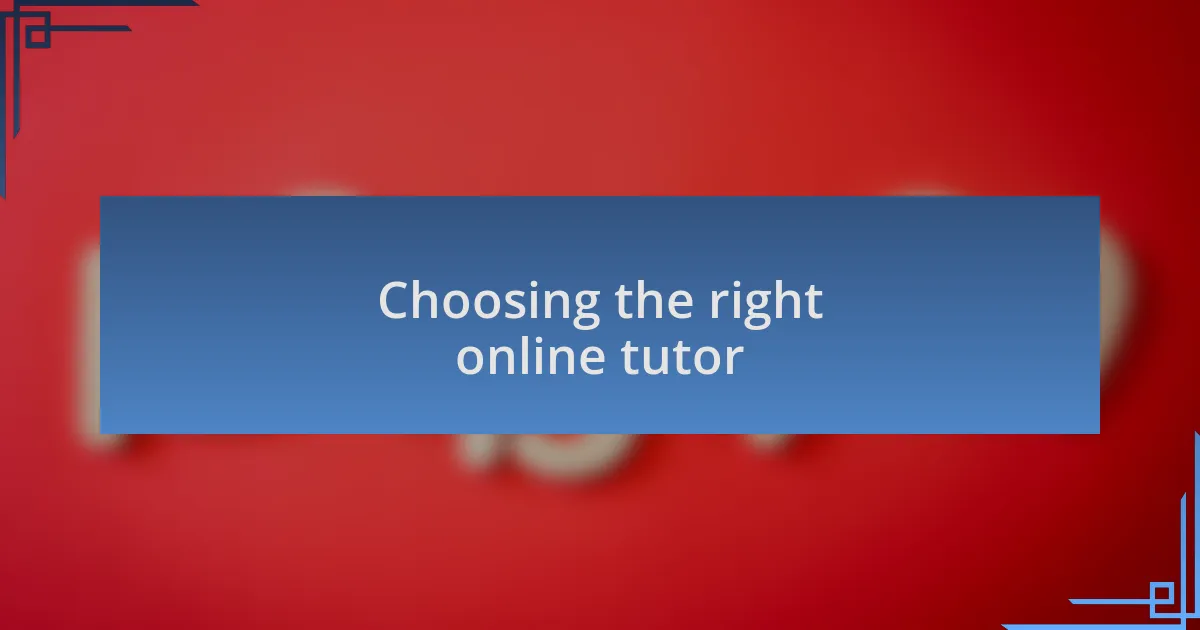
Choosing the right online tutor
When it comes to choosing the right online tutor for dyslexia, it’s crucial to find someone who truly understands the unique learning needs of your child. I recall my search for a tutor and the relief I felt when I met one who had firsthand experience teaching students with dyslexia. Their ability to connect and empathize made all the difference in establishing a supportive learning environment.
Look for tutors who specialize in evidence-based approaches, such as structured literacy programs. I once encountered a tutor who used multi-sensory techniques, incorporating visual, auditory, and tactile elements in their teaching. This not only catered to different learning styles but also kept the sessions engaging—a factor I realized was essential for maintaining my student’s interest.
Don’t hesitate to ask potential tutors about their experience with dyslexia and their teaching philosophy. I remember sitting down with one tutor who shared her passion for making learning enjoyable and accessible. Her excitement was contagious, and it reassured me that she was the right fit to help navigate the challenges of dyslexia with confidence and enthusiasm.
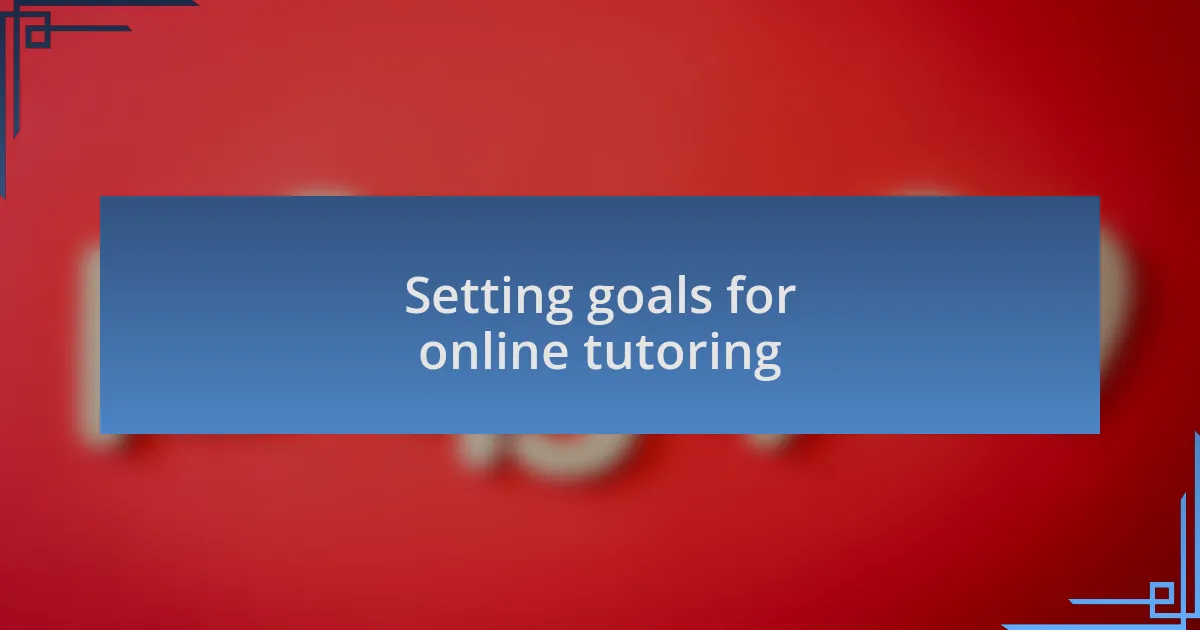
Setting goals for online tutoring
When setting goals for online tutoring, it’s essential to establish clear, achievable objectives tailored to the needs of the student. I remember working with my child on defining specific targets, like mastering a set number of new sight words each week. It was amazing to witness their excitement when they achieved those small milestones—those moments can really boost confidence and motivation.
Another aspect I’ve found valuable is incorporating both short-term and long-term goals. For instance, while we set a long-term goal of improving overall reading fluency, short-term tasks like practicing phonics skills played a critical role in creating a sense of progress. How can we celebrate these victories? Simple rewards for completing milestones can motivate kids and make learning feel less daunting.
Finally, maintaining an open line of communication with the tutor about these goals is crucial. I often sat in on sessions or read reports from my child’s tutor to evaluate progress and adjust our objectives as needed. Has there been a change in focus? Adapting goals as the child develops ensures that the tutoring remains relevant and effective, ultimately leading to greater success.
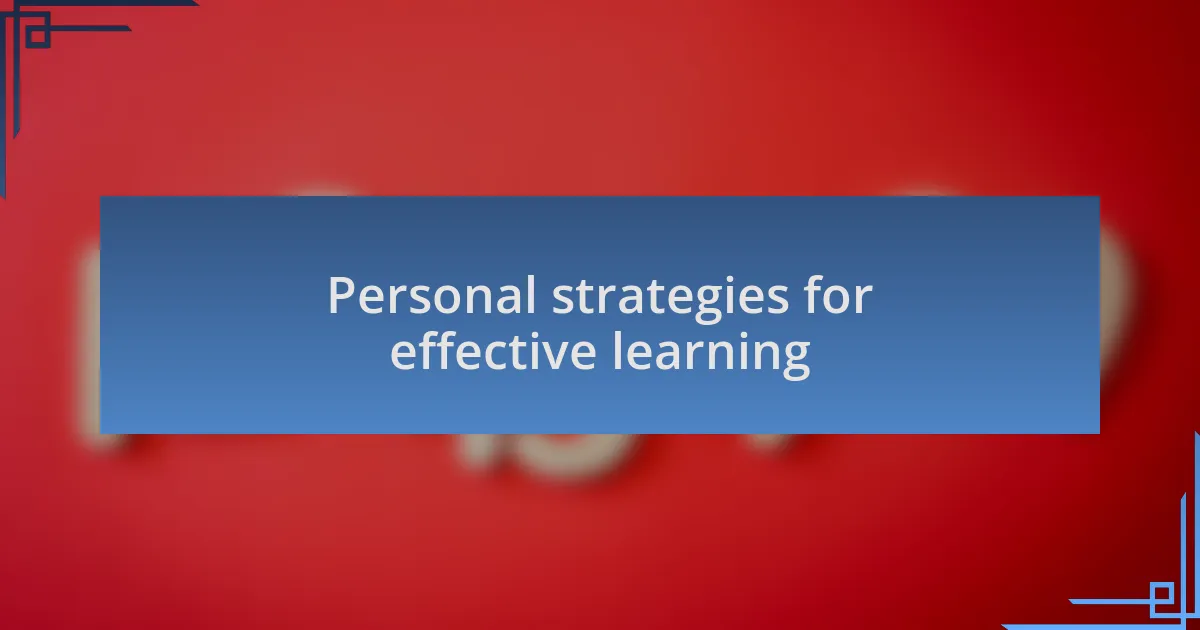
Personal strategies for effective learning
One effective strategy I’ve found is to create a dedicated learning environment at home. This is not just about having a neat space; it’s about establishing a zone that signals to my child that it’s time to focus. I remember the difference it made when I removed distractions, like turning off the TV and putting away toys. It was incredible to see how quickly my child’s attention shifted when they understood that this space was all about learning.
I also emphasize the importance of active participation in the tutoring sessions. I encourage my child to ask questions and engage with the material actively. One memorable moment was when they hesitated to voice their confusion about a word. After inviting them to share their thoughts, they gained confidence and even started leading parts of the discussion. Isn’t it fascinating to think how that small act of encouragement can foster a sense of ownership in their learning?
Another strategy that has profoundly impacted us is the use of multisensory techniques. For example, I often incorporate tactile activities, such as using letter tiles or drawing words in sand. This approach not only caters to different learning styles but also makes studying more dynamic and fun. When my child got to create words in sand, they were so engaged that they forgot they were even learning! How can we leverage that excitement? By turning learning into an experience rather than a chore, we create lasting memories and skills.
![]()
Tracking progress and outcomes
Tracking progress and outcomes is crucial in ensuring that online tutoring is effective for my child. I remember a moment when we were reviewing a set of spelling words. By keeping a simple chart of their improvements, I could visually observe how they tackled new words over time. It became clear that their confidence was building with each successful attempt. Isn’t it rewarding to see those small victories add up?
Regular assessments serve as a benchmark for understanding how well the strategies are working. I started using brief quizzes in a casual manner, treating them more like games than tests. When my child scored higher than expected, their excitement was palpable. It reminded me that success isn’t just about the grades but also about the enthusiasm for learning that those moments ignite.
Additionally, I believe in open communication with the tutor. Updates from sessions help me see patterns in areas of strength and those requiring more focus. There was a time when I noticed my child struggling with comprehension. Based on the tutor’s feedback, we adapted our approach, which led to noticeable improvements. How powerful it is when parents, tutors, and students work together! This collaborative effort ensures we stay aligned on our educational journey.